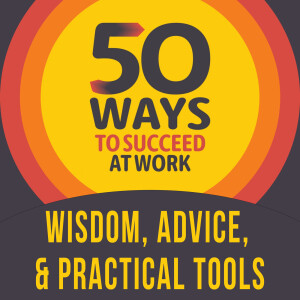

Imagine getting your dream job. Now try imagining deciding to quit. It happens.
Achieving that dream job and abandoning it can seem highly unlikely at first.
Well, Ash Barty fulfilled her dream of winning Wimbledon in 2021, and the Australian Open in January the following year. Then Barty stunned the tennis world by quitting at the age of 25. She said,
"I don't have the physical drive, the emotional want. I am spent."
Starting your first job or even your second or third can be exhilarating. Earning money, learning new skills and meeting new people can make work seem like a continuous new adventure.
But what happens when the excitement fades? Suppose you begin to feel stuck or unappreciated. Or worse, the organisation changes around you and a new manager or colleagues arrive to make your once-dream job seem more like a nightmare.
Knowing when to quit can be challenging but crucial for personal and professional growth. What is essential right now, though, is to understand the signs that it's time to vote with your feet and move on.
There may be warning signals that a once much-liked job is no longer attractive. You're feeling unhappy. While occasionally discontent with work is normal.
If you find yourself dreading going to work every day, it's definitely a red flag. Persistent and unhappiness at work can lead to distress, anxiety and even depression. If you're constantly counting the hours until you can go home, it's maybe time to consider moving on.
You're no longer growing in the job. One of the main reasons people take a job is to grow professionally. If you've been in your role for a while and haven't learnt anything new or advanced in your or career, it might well be time to look for opportunities elsewhere.
Stagnation can lead to boredom and make you less competitive in the job market.
A toxic work environment is yet another red flag. Pay close attention to its presence, as it may tell you something important.
For example, if you constantly encounter negativity, office politics, bullying or harassment, it's a sure sign that you need to rethink your job. No job is worth your well-being, and prioritising your health over a paycheck is essential.
Disagreeing with your organisation's values too, that may be telling you to move on. It could be the employer's approach to environmental issues, social responsibilities or how they treat employees.
Check out the final podcast in this series which contains valuable information about your moral compass.
Better opportunities could also signal that it's time to vote with your feet and that there are better opportunities elsewhere. You probably already know the present situation by keeping your ear to the ground on the job scene.
Still, it's worth remembering that simply moving for the sake of money can be a deceptive gain. Prioritise your professional development to better align with your career goals.
Take Samantha, who left her company to pursue a new opportunity. Her previous firm was fine. However, the latest role allowed her to manage a team and gain additional skills to advance her career.
What Sam failed to realise was that the culture of her new company and her new boss were out of alignment with her personal values, leaving her distressed and unfulfilled. After ten months in the new job, Sam was able to show that her new skills and capabilities could fulfil a newly created position in her previous company. She boomeranged back and continued to grow her career.
Sometimes voting with your feet can be both sensible and a surprising way out of a previously unfulfilling situation. In Samantha's case, for example, she twice used it to resolve an unacceptable situation.
Now, let's talk about looking before you leap. Take a careful look at where you might land. Samantha, who we've just talked about, failed to do that and was lucky to be able to bounce back nearly a year later. Reflect on your decision and don't be hasty. Take time to think about why you want to quit. Write down your reasons.
Are there any ways to address these issues in your current job? Sometimes a conversation with your senior or someone in HR can lead to positive changes for you.
Another precautionary measure is to evaluate your finances. Are you financially prepared to leave your job? Having at least three to six months' worth of living expenses saved can provide an important safety net.
Yet if the job market proves less buoyant than you expected, the cushion may need to be improved. An inadequate cushion can add stress to your job search.
Do some basics around your resume and your LinkedIn profile. For example, highlight your achievements and any new skills that you've acquired. A polished resume can make a big difference in your job search.
And remember to network during the adrenaline rush following a decision to move on. Contact your professional network to let them know that you're seeking new opportunities. Networking can lead to job leads and recommendations that you might not find through traditional job searches.
And my final thoughts on this? Knowing when to quit a job can significantly impact your career and well-being. Be sensitive to signs that it's time to quit. Your career is a journey and it's essential to make choices that support your growth and happiness.
Check out my book, Happiness at Work. It's packed with great stories, compelling advice, and suggestions for tackling real issues that you can encounter at work. There's also an audio version if you prefer listening. Join me next week for another unmissable episode in Series 3. Bye for now.
No comments yet. Be the first to say something!